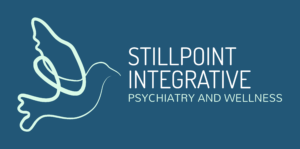Post-traumatic stress disorder (PTSD) affects millions of individuals, disrupting daily life with distressing memories, anxiety, and emotional numbness.
While traditional treatments such as therapy and antidepressants can be effective, many individuals continue to experience persistent symptoms.
Ketamine therapy has emerged as a promising breakthrough for PTSD, offering rapid relief and new hope for healing.
How Ketamine Works for PTSD & Trauma
Ketamine functions differently from conventional treatments by targeting the brain’s glutamate system.
As an NMDA receptor antagonist, ketamine enhances neuroplasticity, helping the brain form new, healthier connections.
This process allows individuals with PTSD to process traumatic memories in a less distressing way, reducing emotional reactivity and improving mood stability.
Ketamine also affects the brain’s default mode network (DMN), which is often hyperactive in PTSD patients.
By temporarily disrupting maladaptive thought patterns, ketamine can create a mental “reset,” allowing individuals to gain new perspectives on their trauma and begin the healing process.
The Rapid Benefits of Ketamine for PTSD
One of the most remarkable aspects of ketamine therapy is its fast-acting effects.
While traditional antidepressants can take weeks to work, many PTSD patients report significant symptom reduction within hours to days of receiving ketamine.
This makes it a valuable option for those who struggle with severe symptoms or suicidal ideation.
Research suggests that ketamine can:
- Reduce intrusive thoughts and flashbacks
- Decrease hyperarousal and emotional numbness
- Improve mood and cognitive flexibility
- Enhance the effectiveness of psychotherapy by making traumatic memories more accessible for processing
Ketamine Therapy Options for PTSD
There are multiple ways ketamine can be administered for PTSD treatment:
- Intravenous (IV) Infusion: The most researched and widely used method for immediate effects.
- Intramuscular (IM) Injection: A convenient alternative to IV infusions with similar benefits.
- Nasal Spray: FDA-approved for treatment-resistant depression and showing promise for PTSD.
- Sublingual Troches: A discreet, at-home option allowing for continued treatment outside of clinical settings.
Integrating Ketamine with PTSD Therapy
Ketamine therapy works best when combined with psychotherapy. By reducing the emotional intensity of traumatic memories, ketamine can help individuals engage more effectively in trauma-focused therapies such as:
- Cognitive Processing Therapy (CPT)
- Prolonged Exposure Therapy (PE)
- Eye Movement Desensitization and Reprocessing (EMDR)
Is Ketamine Right for You?
Ketamine therapy is particularly beneficial for individuals with PTSD who have not responded to traditional treatments.
A thorough evaluation with a qualified provider can help determine whether ketamine is a suitable option based on individual medical history and symptom severity.
Conclusion
Ketamine therapy represents a groundbreaking advancement in PTSD treatment, offering rapid relief and the potential for lasting healing.
By promoting neuroplasticity and disrupting maladaptive thought patterns, ketamine provides a new avenue of hope for those struggling with trauma.
If you or a loved one is seeking relief from PTSD symptoms, contact us today to learn more about our ketamine treatment options or join our waiting list for at-home therapy.
